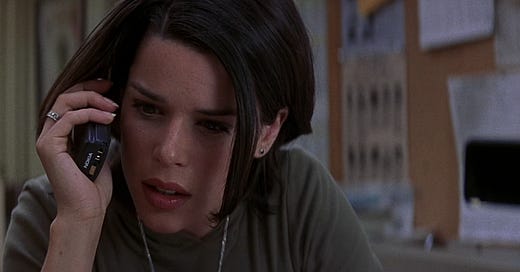This week’s rebroadcast covers tips for connecting with other people even if you’re not meeting in person.
I’m a 23-year-old aspiring screenwriter who recently placed in the Nicholl fellowship competition. I’ve heard from others who made the cut some years back to begin preparing for phone calls from managers, agents and producers who may be interested in my script — which is both exciting and terrifying.
I was wondering if you could share some insight/commentary about pitching over the phone for people like me who do not (yet) live in Los Angeles. I’d hate to squander an opportunity like this because of bad phone etiquette.
– Alexander
The life of a screenwriter, both employed and aspiring, involves a fair number of phone calls. Most are short “just-checking-in” calls. But at least twice a week I find myself in your situation, having to handle something on the phone that would ideally be done face-to-face. I can offer a few suggestions for making the best of it.
1. Put yourself in the room.
Imagine that you’re sitting in this person’s office, having a face-to-face meeting. Obviously, you have no idea what that office looks like, but you’re a screenwriter, so you should be able to conjure something up. More importantly, imagine whom you’re speaking with. You need a face in order to make eye contact.1
I know this sounds goofy, but I think it makes a huge difference. You’re much more engaged when you’re looking someone in the eye — even if it’s all make-believe. It changes your voice, your pace, your word selection. It really helps.
2. Don’t multi-task.
If a phone call is important, dedicate every available brain cell to it. Turn off your computer and any other distraction. If possible, schedule the call. (Even then, there’s a high possibility that an assistant will call at the last minute to push it back 15 minutes. Don’t take any offense.)
3. Rehearse key points.
Since you’re going to be talking with possible producers, agents and managers, you can anticipate the kinds of things that will come up.
Do you see yourself as mostly writing TV or film?
What are you working on now?
What’s happening with that script from the Nicholl?
You want answers to those questions, ideally phrased in ways that make you sound confident, flexible and funny. For example, if they ask if you’re living in Los Angeles, a good answer is, “Almost. I’m packing as we speak.” That may not be entirely accurate, but the person on the other end needs to hear that you’re serious about getting to Hollywood.
4. Ask and listen.
Don’t spend every brain cycle formulating the next clever thing to say. Ask questions and engage. If you’re speaking with someone for the first time, make sure you’re learning something about them as well.
Pitching on the phone is largely the same as pitching in person, with the added challenge of not being able to read body language. So keep it really short — like four sentences — unless they ask for more detail.
Are you enjoying this newsletter?
📧 Forward it to a friend and suggest they check it out.
🔗 Share a link to this post on social media.
🗣 Have ideas for future topics (or just want to say hello)? Reach out to Chris via email at inneresting@johnaugust.com, Mastodon @ccsont@mastodon.art, or Threads @ccsont@threads.net
One downside of this technique: there are executives whom I’ve had long relationships with strictly on the phone and by email. By the time I meet them in person, my brain is locked into one image of them, and the actual person seems like an impostor.




